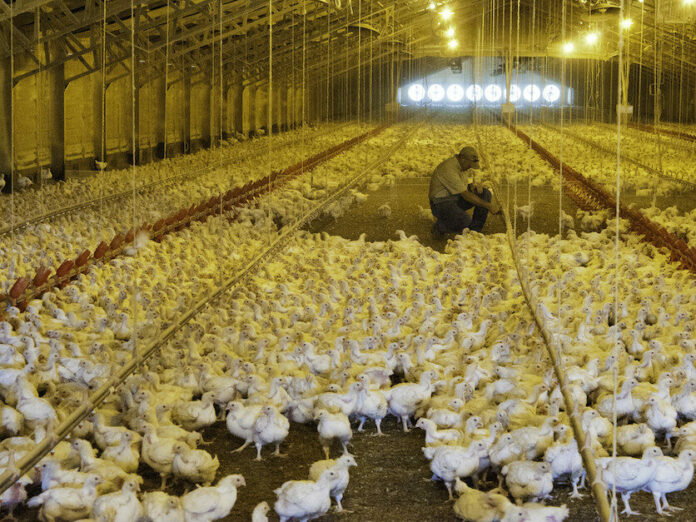The U.S Department of Agriculture has recently announced the finalization of a rule that aims to limit poultry integrators from paying reduced rates to producers through tournament ranking systems, while still allowing for bonuses to be given. This rule, which was initially proposed in June and was released in its final form on Tuesday, is set to take effect on July 1, 2026. The objective of this regulation is to ensure fair and transparent compensation for broiler growers, limit excessively variable compensation, and provide growers with key information when upgrades are requested.
Agriculture Secretary Tom Vilsack emphasized that this rule is intended to create a more balanced and fair tournament system, where producers have the opportunity to earn bonuses without being penalized. The rule will also provide producers with additional input on their responsibilities and a better understanding of the integrators’ obligations concerning input requirements. Vilsack highlighted the importance of establishing a level playing field for producers and integrators alike.
The impetus behind the prohibition on deductions based on the tournament system stemmed from a 2023 settlement between the Justice Department and major poultry processors, such as Cargill and Wayne-Sanderson Farms. The settlement was in response to a lawsuit brought by the Justice Department and mandated that tournaments can only account for up to 25% of the total compensation. This concept was also a key component of the settlement agreement.
This rule represents the third Packers and Stockyards Act rulemaking finalized by the USDA during the Biden administration. The first rule requires poultry integrators to disclose average gross payments over a five-year period, along with other pertinent information to growers. The second rule prohibits packers and contractors from taking discriminatory actions based on a producer’s personal characteristics.
While a fourth rule was proposed by the agency last September to further define unfair practices under the Packers and Stockyards Act, it was ultimately withdrawn due to the complexity and time required for finalization. Vilsack explained that the decision to withdraw the rule was made in light of the practical challenges involved in completing the regulatory process.
Addressing concerns about potential rollbacks of the finalized tournament system rule by future administrations, Vilsack pointed to the provisions outlined in the DOJ settlement as evidence of support for the rule. He expressed confidence that the rule would foster a fair market for both producers and integrators, citing the agreement reached by one of the largest entities engaged in a tournament system.
Vilsack anticipates that farmer groups will express support for the rule, as it addresses many of the concerns raised by producers who seek a level playing field in the industry. The goal is not to tilt the field in favor of any particular group but to ensure that all participants have an equitable opportunity to succeed.
In conclusion, the finalization of this rule represents a significant step towards promoting fairness and transparency in the poultry industry. By establishing clear guidelines for compensation and limiting variability in the tournament system, the USDA aims to create a more equitable market for producers and integrators. For more updates on agricultural news, visit www.agri-pulse.com.


